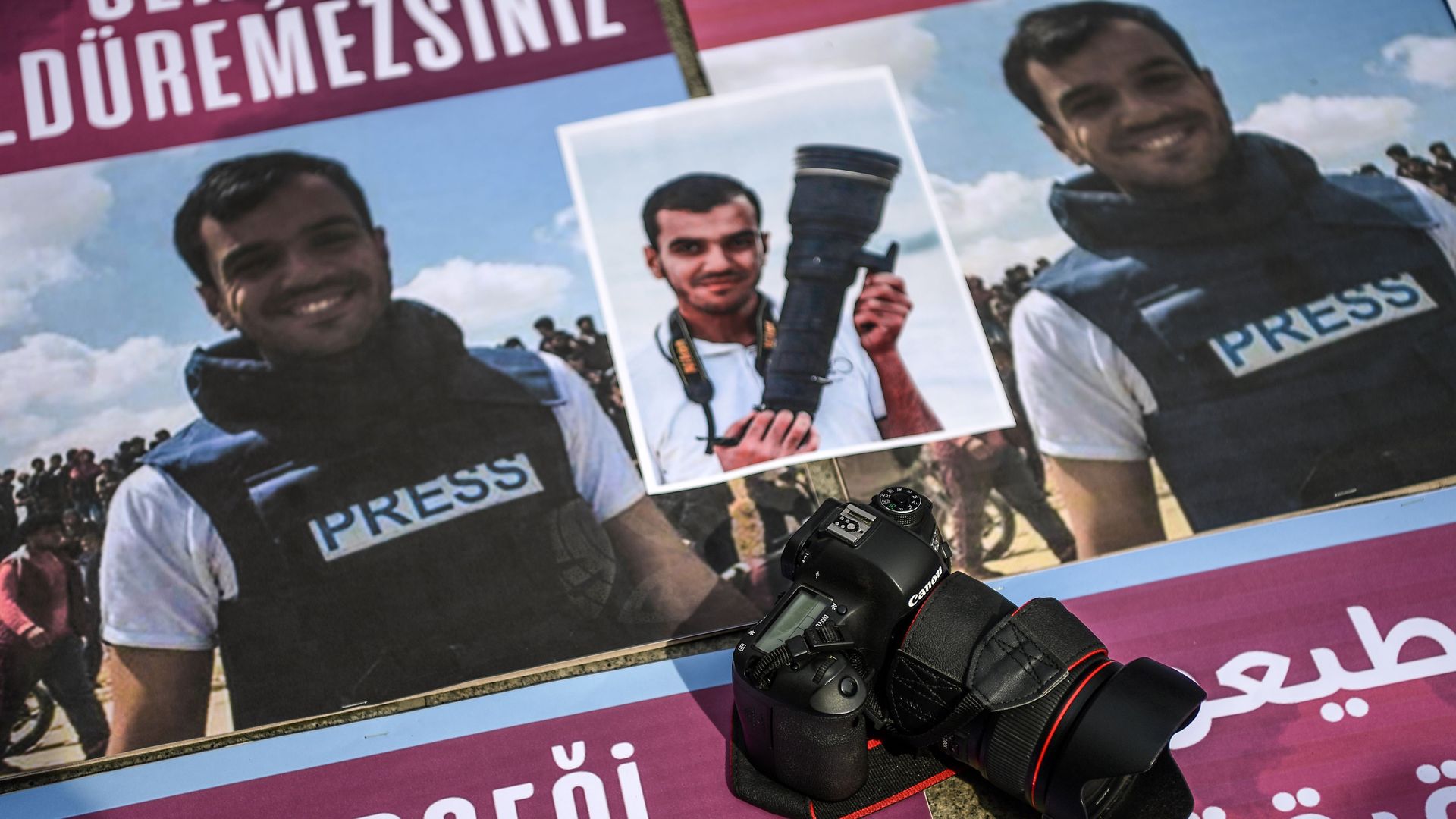Updated Apr 13, 2018 - World
Expert VoicesGaza protests continue with no end in sight
Add Axios as your preferred source to
see more of our stories on Google.

People protest the killing of Palestinian journalist Yaser Murtaja, on April 11, 2018, in Istanbul. Photo: Ozan Kose/AFP via Getty Images
